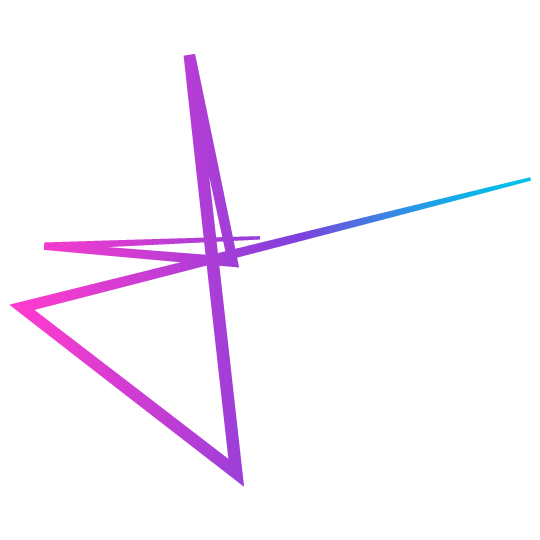“Flow State” aka, being in the zone, is the mental state in which a person performing some activity is fully immersed in a feeling of energized focus, full involvement, and enjoyment in the process of the activity. (wikipedia)
Flow feels like focus and effort come easily and naturally. The activity is invigorating and energizing. Losing track of time or time slows down. A feeling of complete presence and being in the moment. High sensory and instinctual awareness – seeing things as they happen, instinctually reacting and intuitively seeing a couple steps ahead with anticipation using the lightening-fast reflexive brain, not the slow-analytical brain.
Because flow produces such a positive state of mind it is intrinsically rewarding – the process, mindset and energizing effects but it also becomes extrinsically rewarding, as the person continues the activity, just through the sheer fact of adding hours of work, effort and time to the ability, it develops a mastery of the skill, which people notice, encourage, validate and reward.
i.e. For an athlete, dancer or someone that uses their physical ability to have to perform – kinesthetics, physical sensory and awareness are their natural ability, the flow state they naturally gravitate to. Early in their childhood they found a state of mind that let them feel free, limitless, presence, enthusiasm, inspired. And as the people around them saw their talent and encouraged their ability, creating an inner/outer affirming loop.
Different people find different flow states, could be writing, drawing, math, reading, creating, thinking, leading, serving. Something that taps into the best of them, the best of who they are, the best of what they can give to the world, the best of how they want the world to receive and see them.
This is everyone’s natural and dominant mindset or personality function. Most of the time people are able to get into these mindsets pretty easily and frequently, but sometimes there’s a disruption of this flow state or it can also happen when trying to do something different, something that doesn’t come naturally or is out of the “comfort zone”
The biggest blocker that disrupts flow or prevents someone from getting into flow is the inner voice. The inner voice sounds like desires, expectations, feelings, judgement. “I’m doing bad/good.” “I’m going to do bad/good.” “I want to/don’t want to…” “People are going to think…” “I think I’m…” “I feel like…” “I’m good at this” I’m bad at this” etc.
This is the ego-mind. The voices are critical, self-judgments, trying to prevent failure, embarrassment and rejection. The ego will sabotage your attempts and ultimately hinder or even stop your progress.
If someone has ever told you “you think too much” or “get out of your own head”, and you find the voices in your head sounding like those self-judgments, turn them off. These voices might come up, when the activity is uncomfortable, challenging, stressful, the stakes are too high, or it doesn’t play into our strengths and natural abilities.
A couple tools to use…
Reframe the intent – whatever skill or ability you’re supposed to do or perform, just have the intention of being present and in the moment. Remove the intent or motivation of doing them to produce a result, outcome, prove something, or to be valued to be good or bad.
Reframe the focus – put your focus on a specific task or action, instead of the activity as a whole, drill down into a more granular, singular action.
Reframe the expectation – whatever the result or outcome should be, don’t focus on what hasn’t happened yet and don’t let that influence how you approach the activity – you might over-try which may have a negative impact. Don’t try to force a result or outcome.
Reframe the context – take the approach of using the activity as a development progression instead of a final test of fatalistically determining your value, talent level, ability, potential and people’s perception of you. It’s not a test, you’re not being written off.
Reframe the stakes – most likely in everyday situations nobody is going to die or lose something significant based on your performance, at least voluntarily. (If so, then you would have probably already learned the skills to have been put in that situation, i.e. doctor) But even if you’re a doctor, there are plenty of place that are out of your comfort zone.
I know we live in a win or lose, cut through society. We need to win all day, everyday. Failure is unacceptable, and you’re labelled a loser and should just quit. But failure is okay, losing is alright. It’s not the end of the world. You will get another chance, maybe not the same exact chance, maybe something better, maybe something less. With a growth mindset, failure or not succeeding is just feedback on where we are on the development roadmap. It’s okay to be where you are in the progress of development as long as you have a growth mindset and continually progress your development. Use the feedback as an indication of what skills we can develop and work on, maybe it was a lack of preparedness, readiness or development. It doesn’t matter, use that feedback and continue growing and advancing. Make sure the stakes you have in your mind are not outweighing the stakes in reality.
Above all, have grace and compassion with yourself. It’s a process. Facing challenges, adversity and stress even while using our innate talents is difficult. So using our secondary talents or going outside our comfort zone is even more difficult, but it’s important to explore so that we can learn and understand other people. Having grace and compassion for ourselves is also growing in empathy, understanding and compassion for each other.
